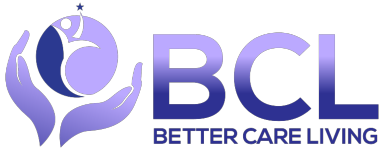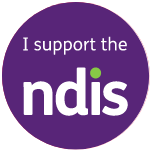Psychosocial Recovery Coaching

Psychosocial Recovery Coaching NDIS
Services of our Recovery Coaches:
- Implement programs that will assist you regain and improve you coping abilities and recovery.
- Helping you develop goals for your life through recovery planning.
- Coaching you to build on strengths, knowledge, skills, resilience, and decision-making.
- Assisting you with social networking and to connect positively with family and friends.
- Providing information about mental health which is tailored to your situation and needs.
- Coordinating NDIS supports and that of other mental health services and resources for you.
- Collaborating with other services to ensure that the supports you get are your goals and what you need.
- Advocating appropriate health and mental health support for you that is client-focused when you are unwell.
- Assisting you in capacity-building and learning about self-advocacy.
- Supporting you and your significant others in combating the stigma associated with mental illness.
- Assisting you in skill building and through psychoeducation help strengthen your resistance to acute stress and relapse.
- Engaging you in a range of evidence-based therapeutic interventions to optimize your functional recovery.
frequently asked questions
What Is Psychosocial Disability
Psychosocial Disability refers to a psychological and social condition that may arise from a mental illness. It usually impacts people’s quality of life, their ability to live independently and perform daily activities. A psychosocial disability may restrict a person’s ability to complete daily tasks, concentrate, interact with others, manage stress, cope with multiple tasks and so on.
Psychosocial Disability Key Points
• If you have a mental illness that is affecting your ability to perform daily tasks, participate in the community and live a fulfilling life, you may be able to receive NDIS support.
• The NDIS does not fund the treatment of psychosocial disability, but rather provides support to help you perform everyday tasks.
• To be eligible for mental health support under the NDIS, you must first provide evidence of your psychosocial disability and how this impacts your life daily.
Benefits Of A Psychosocial Recovery Coach Over A Support Coordinator
• More experience with what supports might be needed by a person with psychosocial disability.
• More experience with mental health systems and how to best access them.
• More understanding of fluctuating conditions and how to plan for ‘good’ and ‘bad’ days.
• More understanding of what goals might be involved in a recovery journey and the importance of independence and self-determination.
• More focus on how an individual’s experiences, gender, sexuality, family culture and community influence their current state of mind.
• Support to develop an individual recovery plan.
• Dedication to a trusting relationship between the coach and participant, which is needed for recovery-oriented practice to work.
Choosing A Psychosocial Recovery Coach
• The first decision to make is whether you would like a coach with lived experience of mental health struggles or a coach who has learned about mental health through their education and work experience.
• Both types of recovery coaches are qualified to help you, so it is up to personal preference which one you choose. You don’t have to stick with either a coach with lived experience or a coach with learned experience forever and you can switch between the two types.
• You can also choose to have a support coordinator rather than a recovery coach, having a recovery coach is not mandatory for people with psychosocial disability.
• However, the NDIS is unlikely to fund both a recovery coach and a support coordinator for you as a recovery coach will do much of the work that a support coordinator would do.
If you are still unsure about whom to choose, talk to Better Care Living. We can assist you make an informed choice based on your current needs.
How Can NDIS Help If You Have Psychosocial Disability?
Some examples of how the NDIS can help include:
• Funding for therapies such as seeing a psychologist, counsellor, psychiatrist or social worker.
• Transport to get to medical appointments and support groups.
• Assistance in learning how to travel independently on public or private transport.
• Support in setting personal and professional goals, budgeting and paying bills.
• Self-care assistance, such as hygiene, showering and grooming.
• Support to help you get out in your community to build friendships.)
• Assistance with shopping, meal preparation and cooking.
• Support with cleaning around your house or garden.
• Help to access Centrelink.
• Assistance with finding the right accommodation for you (including organising support in the home if required).
• Support coordination or psychosocial recovery coaching and assistance with the NDIS.
Psychosocial Recovery Coaches And What They Do
Psychosocial recovery coaches help people with psychosocial disability to live a fulfilling life. They work on supporting you to be the best you can be through positive, hope-based recovery planning. Also known simply as recovery coaches, they work with National Disability Insurance Scheme (NDIS) participants, their families, carers, support services and other organisations to coordinate supports and make sure participants get the most out of their NDIS plan.
• Recovery coaches provide a more targeted coordination service for people with psychosocial disability which is focused on improving your health.
• Coaches can help with a wide range of factors in your life from connecting with friends and family to learning about self-advocacy.
• The focus of recovery coaches is to assist with recovery-oriented practice, which empowers and supports an individual to make their own choices, live a meaningful, satisfying and purposeful life, and be a valued member of the community.
What do they do?
• Implement programs that will assist you regain and improve you coping abilities and recovery
• Helping you develop goals for your life through recovery planning.
• Coaching you to build on strengths, knowledge, skills, resilience, and decision-making.
• Assisting you with social networking and to connect positively with family and friends.
• Providing information about mental health which is tailored to your situation and needs.
• Coordinating NDIS supports and that of other mental health services and resources for you.
• Collaborating with other services to ensure that the supports you get are your goals and what you need.
• Advocating appropriate health and mental health support that is client-focused for you when you are unwell.
• Assisting you in capacity-building and learning about self-advocacy.
• Supporting you and your significant others in combating the stigma associated with mental illness.
• Assisting you in skill building and through psychoeducation help strengthen your resistance to acute stress and relapse.
• Engaging you in a range of evidence-based therapeutic interventions to optimize your functional recovery.



